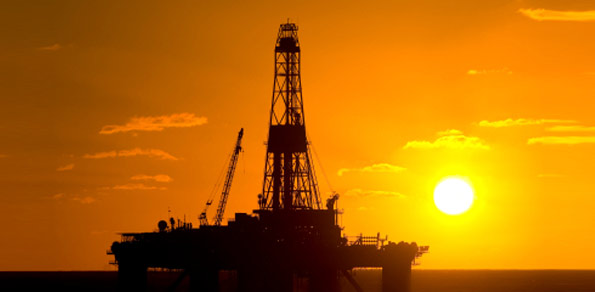The slump in share values and the volatility of the forex markets hasn’t reduced me to swearing, I moved on a few years back from swearing at the monitor and “the markets” when my trades went bad. Oh ok, I admit it, I still do it now and again, but hey, you have to have a competitive streak in this business right? The fracking in question refers to the process of shale exploration for gas in the UK, it’s known as fracking.
There are times when the energy crunch we’re facing hits you, not just at the pump (when you realise that petrol has increased by circa 30% during the past four years), or when you contemplate that, despite the economic gloom, Brent crude is still over $100 a barrel and we are literary scraping the oil and gas barrels. The relatively new phenomena of extracting oil from tar sands, or drilling for natural shale gas, is deeply worrying. Shale gas is extracted by drilling down into the ground and then hydraulically fracturing the shale using high pressure liquid to release the gas. The process has proved controversial in the US because the drilling process involves chemicals, including carcinogenic compounds, which can pollute water supplies.
Billions has already been invested by companies seeking to explore shale gas extraction in Pennsylvania and only now has a Pennsylvania appeals court ruling raised questions as to who can legitimately claim ownership of the natural gas embedded in the Marcellus shale formation, potentially putting in doubt the legitimacy of thousands of drilling leases. Ownership of the oil and gas rights isn’t clear. For more than a century, Pennsylvania has required landowners to consider oil and gas rights separate from more general “mineral rights” when transferring ownership of resources beneath the surface of their property. The defendants in the title dispute argue that shale gas is different and should be considered part of the mineral rights because it is contained inside rock.
The environmental issues versus shale gas are well recorded, the most prominent of which is the contamination of the water supply to residents within the vicinity. A recent study of the effects of shale-gas extraction on drinking water published in the Proceedings of the National Academy of Sciences tested 60 drinking water wells in Pennsylvania. All of the water wells, with concentrations above 28 milligrams of methane per litre of water, were within one kilometre of active drilling. A dissolved methane concentration greater than 28 mg/L indicates that potentially explosive or flammable quantities of the gas are being liberated in the well and may be liberated in confined areas of the home. In ten instances the water wells have recorded readings of over 30 and approaching 70.
In the UK the process of shale exploration is known as fracking, energy firm Cuadrilla Resources has recently announced plans to sink up to 800 wells in the Lancashire area of the UK but campaigners have called for a ban on shale gas exploration amid environmental and safety concerns. The problems have prompted campaigners to call for a Britain-wide ban on shale gas extraction. Calls for a moratorium on fracking were ruled out earlier this year by a committee of MPs who said they’d found no evidence it poses a risk to water supplies from underground aquifers. The company’s exploration efforts near Blackpool were stopped earlier in the year due to fears they were causing tremors, they estimate there is 200 trillion cubic feet of underground gas in the area. They plan to sink as many as 400 wells over the next nine years and up to 800 over 16 years if gas extraction is successful.
We have a relatively new fuel extraction method, that can and does pollute the water supply, can cause localised earth tremors, is incredibly front end investment intensive, is in economic terms a very poor return on investment and given the huge front end cost the ultimate consumer price will be very high, but our insatiable appetite and desperation for fuel causes our elected officials to wave away concerns over the long term benefits in return for the short term gains for the few.
As the great and the good of the world’s financial elite have gathered and continue to gather in various meetings in Washington they’re also reduced to fracking for ideas to tap the evaporating shallow pools of liquidity in order to satisfy the one dimensional growth model they stubbornly adhere to. They know they only have one answer, one fracking trick left, an absolute mega bi-lateral QE to end all QEs, but they can’t bring themselves to do it knowing that the inflation caused would (in real and inflation adjusted terms) wreck the investment positions of many of the assembled good and great..the turkeys just can’t bring themselves to vote for Christmas.
After the tumult of yesterday Asian markets fell in overnight and early morning trade, but not by as much as feared given the fireworks on Wall Street yesterday, the CSI closed down 0.6% and the Hang Seng closed down 1.36%. The ASX closed down 1.56%, commodities falling hits the Australian index particularly hard. The SPX equity index future is currently in positive territory circa 0.7%. The ftse is currently up marginally by 22 points. Brent crude is up $99 a barrel and gold is off $4 an ounce. Sterling has recovered some of it’s position versus the majors, up approx. 1% versus the dollar, 0.5% up versus yen and flat versus the Swissy. The Euro has made small gains versus the dollar,0.5% which has fallen versus the Franc. The Swissy is fairly flat versus most of the majors but has drifted slightly versus the Euro.
There are no major data releases this afternoon prior to or at the NY opening.






Comments are closed.